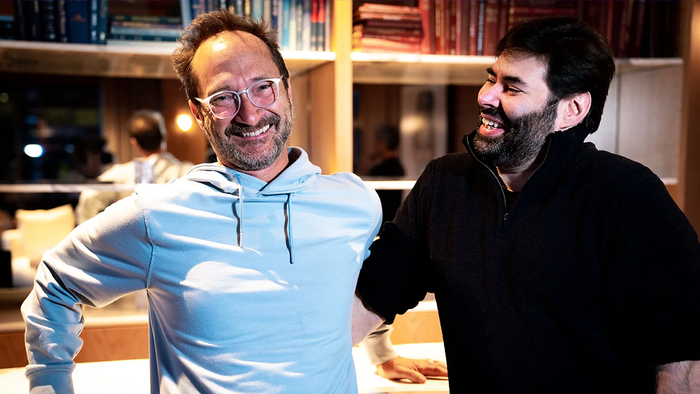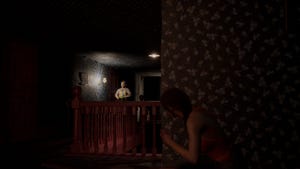
Featured Blog | This community-written post highlights the best of what the game industry has to offer. Read more like it on the Game Developer Blogs.
5 lessons learned from 5 months
A look back at my first experiences in applied game design, and how I interpreted my first successes and failures.

[This article was originally posted on my blog. You can read the original article here.]
I have learned a lot these past few months about being a game designer. My time at the National Institute of Digital Entertainment (ENDI) in Quebec City was an excellent way to put into practice all the academic knowledge I had acquired so far. I managed to help release 3 video game projects in the span of one summer and I am honestly amazed at how fun and incredible they turned out.
During my time at ENDI, I had the aid Jean-François Dessureault, senior game designer at Frima Studios. He taught and guided me through some of my initial errors and helped shape a lot of my current methods in applied game design and theory. I owe him a lot for my early success.
A few weeks ago while working, I listened to a great IGDA Wisconsin meeting showcasing talks from Raven Software and previous chapter president Manveer Heir. He presented five important lessons he had learned from his first 5 years in the gaming industry.
Having recently spent exactly 5 months developing my first games, I thought it couldn’t hurt to try and talk about my personal experiences. Here are some things I’ve learned about game design and development.
1- High concept before anything else
The all-powerful, all-important master idea is paramount to helping cement what game a will be for you and your team. It is vital to have a clear idea early in production and throw as much elements into the mix. After it’s done, you can shape the game idea into something practical that can help launch production. Ideas that aren’t useful at a time may just become the solution to a problem later.
I learned about the value of the high concept by trial and error. When working on a game, we found out around the end of production that one of the game systems was a bit overly simple and lacked depth. This could have been easily avoided if we had brainstormed just a little harder more before starting building the system in question.
2- Structure is key
Clear idea and documentation structure is an invaluable tool. It is paramount to be able to structure and communicate ideas through the spoken and written word. Bullets points, small interconnected documents, use cases, schematics and graphs. Not all-encompassing master documents, pages of text and paragraphs.
Everyone should be able to understand a game system or mechanic by reading or looking at it. It is useful for everyone involved in production, minimizes confusion and helps transparency in the case that something is gravely misinterpreted.
I learned to use Jesse James Garrett’s model for information architecture and it’s a great tool. The programmer’s I worked with responded really well to it.
3- Playtest often
Playtests help at every stage of production. Even between team members or exterior players, it is essential to obtain feedback on a particular feature or idea. It helps confirm or reconsider a particular element in the design that might cause extra work later on.
Simply asking the person next to me their opinion proved to be helpful on several occasions. Unfortunately, during the first 3 months of work we focused too much on trying to obtain feedback from people outside the studio. No one was always readily available during work hours, so this proved difficult. We did have minor success with an online limited release of different builds through friends and professional acquaintances. This gave us solid feedback. Unfortunately was a bit too late in production for us to use the data to improve the game substantially.
I personally assure that the next projects I am involved will have more opportunities for playtests and feedback.
4- Making the game communicate
From the user interface to game mechanics, it is vital that the game communicate effectively its actions to players. Too many times during production we had simple ideas or mechanics that would occur and genuinely confuse the player. Half the worth of a game mechanic is about proper communication when you consider it.
I learned during the early writing/planning stages that it is essential to decide on proper feedback and usability for everything in the game. Paper mock-ups done in pencil help burn through high amounts of possible scenarios and find flaws efficiently.
5- Emotions and game theory are nice, but…
They come later. I’ve spent a lot of time reading up on game design in the last few years. Reading about big productions and how they tried involving and immersing players through art, story or novel game mechanics. Understanding how new platforms shaped innovation or lack thereof, depending on your opinion.
It came to me as bit of a culture shock that almost none of that is involved in actual day-to-day activities of being game designer. My time was mostly spent doing actual work like writing or communicating with my team members about how things should be built for the game to function in the most literal way possible. It really brought my expectations down to a more down-to-earth level and I am happy for that.
I definitely aspire to someday reach a professional level where I can help video games, as a medium, advance and reach new heights but it’s not going to happen tomorrow. Right now I would rather invest my time into working on fun and enjoyable projects.
Conclusion
After learning so much these past few months, even with a solid reality check on many levels, I can’t wait to do more. Video games are my passion. By working and writing every day, I hope I’ll be able to continue making better ones. I will never stop trying to learn about them, to be sure. Game design is a growing field of study and there is still so much to do.
Read more about:
Featured BlogsAbout the Author(s)
You May Also Like













